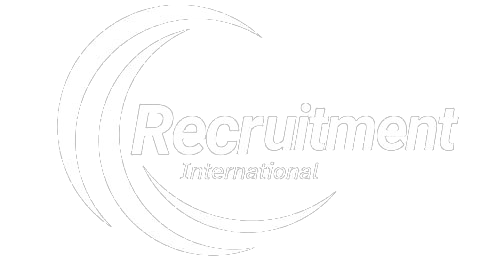The Role of Technology in Modern Recruitment: Leveraging AI, Automation, and Analytics
The Role of Technology in Modern Recruitment
In the ever-evolving landscape of recruitment, technology in modern recruitment has emerged as a transformative force, revolutionizing the way organizations attract, assess, and hire talent. With advancements in artificial intelligence (AI), automation, and analytics, recruiters now have access to powerful tools and insights that streamline processes, enhance efficiency, and improve decision-making. But what exactly is the role of technology in modern recruitment, and how is it reshaping the hiring process?
Understanding the Impact of Technology in Recruitment
Technology in modern recruitment encompasses a wide range of tools and platforms designed to streamline and optimize various aspects of the hiring process. From applicant tracking systems (ATS) to AI-powered recruitment software, these technologies are reshaping traditional recruitment practices and enabling organizations to stay competitive in today’s fast-paced job market.
The Evolution of Recruitment Technology
The use of technology in modern recruitment has evolved significantly over the years. What began as basic applicant tracking systems has now transformed into sophisticated AI algorithms that can analyze resumes, assess candidates’ skills, and even predict their likelihood of success in a given role. This evolution has enabled recruiters to become more data-driven and strategic in their approach to talent acquisition.
Leveraging AI in Recruitment
Resume Screening and Candidate Matching
One of the most significant advancements in technology in modern recruitment is the use of AI for resume screening and candidate matching. AI-powered algorithms can quickly sift through thousands of resumes, identifying the most qualified candidates based on predetermined criteria such as skills, experience, and qualifications. This not only saves recruiters time but also ensures a more objective and efficient selection process.
Chatbots and Virtual Assistants
Chatbots and virtual assistants are another innovative application of AI in recruitment. These intelligent bots can interact with candidates via messaging platforms or websites, answering questions, scheduling interviews, and providing updates on the status of their applications. By automating routine tasks and providing real-time support to candidates, chatbots enhance the overall candidate experience and free up recruiters to focus on more strategic activities.
Embracing Automation in Recruitment
Streamlining Administrative Tasks
Automation plays a crucial role in streamlining administrative tasks throughout the recruitment process. From scheduling interviews and sending follow-up emails to collecting feedback from hiring managers, automated workflows ensure that no step is overlooked and that all stakeholders are kept informed and engaged. This not only improves efficiency but also enhances the overall candidate experience.
Interview Scheduling and Video Assessments
Gone are the days of back-and-forth emails to schedule interviews. With automated interview scheduling tools, recruiters can seamlessly coordinate interviews with candidates and hiring managers, taking into account their availability and preferences. Additionally, video assessment platforms allow recruiters to conduct initial screenings and assessments remotely, saving time and reducing the need for in-person interviews.
Harnessing Analytics in Recruitment
Data-Driven Decision Making
Analytics play a vital role in technology in modern recruitment by providing valuable insights into various aspects of the hiring process. By analyzing data on candidate sourcing, application rates, time-to-hire, and candidate quality, recruiters can make more informed decisions and identify areas for improvement. This data-driven approach enables organizations to optimize their recruitment strategies and achieve better outcomes.
Predictive Analytics for Talent Acquisition
Predictive analytics is another powerful application of technology in modern recruitment. By analyzing historical data and patterns, predictive analytics algorithms can forecast future hiring needs, identify potential sources of talent, and even predict candidates’ likelihood of success in a given role. This proactive approach to talent acquisition allows organizations to stay ahead of the curve and build a strong pipeline of qualified candidates.
Overcoming Challenges in Adopting Technology in Modern Recruitment
Integration with Existing Systems
One of the challenges organizations face when adopting technology in modern recruitment is integrating new tools and platforms with existing systems and processes. This may require collaboration between IT, HR, and other departments to ensure seamless integration and minimize disruptions to workflow.
Ensuring Data Security and Privacy
With the increased use of technology comes concerns about data security and privacy. Organizations must ensure that they have robust cybersecurity measures in place to protect sensitive candidate information and comply with relevant data protection regulations, such as GDPR and CCPA.
Conclusion
Technology in modern recruitment is revolutionizing the way organizations attract, assess, and hire talent. From AI-powered resume screening to automated interview scheduling and predictive analytics, these technologies offer numerous benefits, including improved efficiency, enhanced candidate experience, and better decision-making. However, adopting technology in modern recruitment also presents challenges, such as integration with existing systems and ensuring data security and privacy. By overcoming these challenges and embracing innovative technologies, organizations can stay competitive in today’s fast-paced job market and build a more diverse, skilled, and engaged workforce.
Frequently Asked Questions (FAQ) about Technology in Modern Recruitment
Q: What is technology in modern recruitment?
A: Technology in modern recruitment refers to the use of advanced tools and platforms, such as artificial intelligence (AI), automation, and analytics, to streamline and optimize various aspects of the hiring process. These technologies enable recruiters to attract, assess, and hire talent more efficiently and effectively.
Q: How does technology impact recruitment?
A: Technology has a significant impact on recruitment by improving efficiency, enhancing the candidate experience, and enabling data-driven decision-making. From AI-powered resume screening to automated interview scheduling and predictive analytics, technology offers numerous benefits that help organizations attract and hire top talent.
Q: What are some common applications of technology in modern recruitment?
A: Common applications of technology in modern recruitment include AI-powered resume screening and candidate matching, chatbots and virtual assistants for candidate engagement, automation of administrative tasks such as interview scheduling, and the use of analytics for data-driven decision-making and predictive talent acquisition.
Q: What are the benefits of adopting technology in modern recruitment?
A: The benefits of adopting technology in modern recruitment include improved efficiency and productivity, enhanced candidate experience, better quality of hires, reduced time-to-fill positions, and increased access to data-driven insights for optimizing recruitment strategies.
Q: What challenges are associated with adopting technology in modern recruitment?
A: Challenges associated with adopting technology in modern recruitment include integration with existing systems and processes, ensuring data security and privacy, addressing resistance to change, and overcoming technical barriers such as system compatibility and usability issues. However, these challenges can be overcome with proper planning, collaboration, and implementation strategies.







